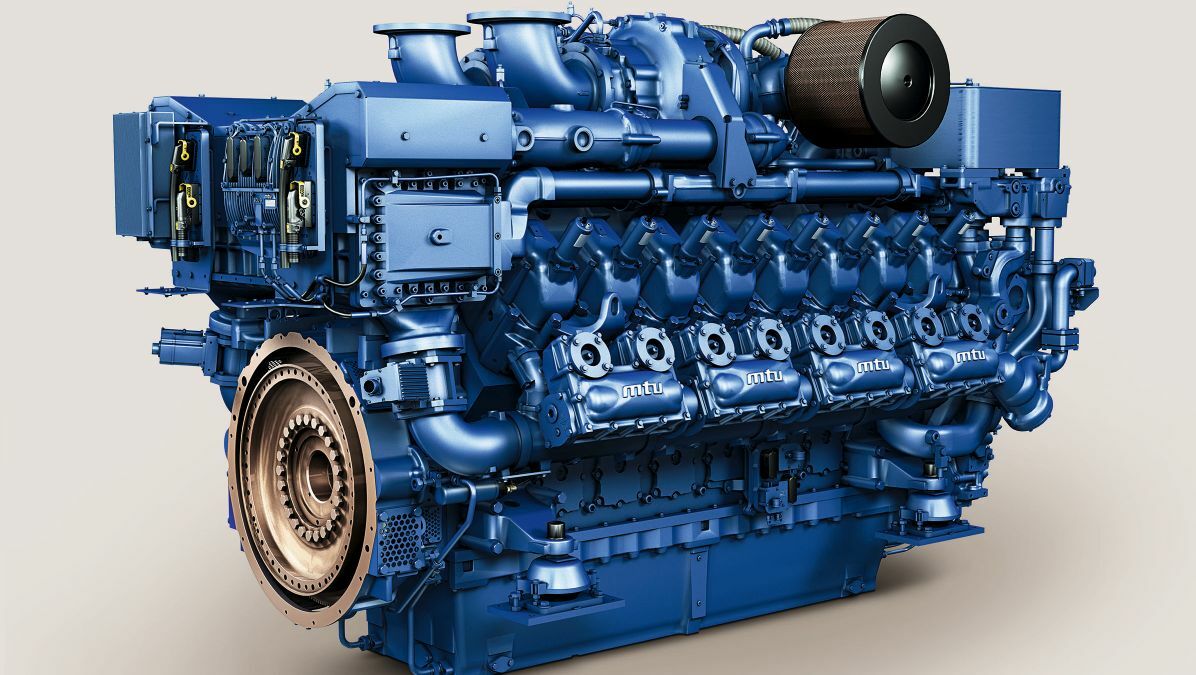Boost Your Fleet with Engines For Africa's Option
Boost Your Fleet with Engines For Africa's Option
Blog Article
Check Out a Variety of Engines for each Automobile and Function
The vehicle landscape is significantly complex, with a diverse variety of engine types designed to satisfy details performance and effectiveness requirements throughout different automobile categories. Additionally, durable engines serve the demands of work automobiles, while environment-friendly choices are obtaining traction in the search of lasting transportation.
Types of Automotive Engines
Automotive engines can be classified into several unique types, each designed to satisfy certain performance and performance requirements. The most common categories consist of interior combustion engines, electric engines, and crossbreed systems.

Electric engines, on the other hand, operate electrical power kept in batteries, supplying immediate torque and no discharges. These engines are ending up being progressively prominent because of innovations in battery innovation and the expanding emphasis on sustainability.
Crossbreed systems incorporate both interior combustion and electric engines, allowing cars to optimize fuel efficiency and reduce exhausts by effortlessly switching in between power resources. Each engine type offers its advantages and drawbacks, affecting factors such as lorry design, intended usage, and market need. Comprehending these differences is vital for producers and customers alike when selecting the ideal engine for their certain demands.
Performance Engines for Sports Cars
Efficiency engines for sporting activities automobiles are especially engineered to provide boosted agility, speed, and power, establishing them in addition to basic automotive engines. These engines commonly make use of innovative modern technologies such as turbocharging, supercharging, and variable shutoff timing to optimize performance and responsiveness.
Generally, performance engines are developed with higher compression ratios, which permit for better energy extraction from fuel. This leads to excellent horsepower and torque figures, making it possible for quick velocity and higher full throttle. The light-weight products made use of in these engines, such as light weight aluminum and carbon fiber, contribute to reduced overall car weight, enhancing handling and ability to move.
Engine setups like V6, V8, and even hybrid systems are typical in performance sporting activities cars and trucks, each offering one-of-a-kind advantages in terms of power distribution and driving dynamics. The adjusting of these engines is likewise essential; many makers optimize the engine monitoring systems to supply an electrifying driving experience, usually including sport settings that adjust throttle feedback and equipment changes.
Reliable Engines for Daily Commuters
In the realm of everyday commuting, efficient engines play a crucial role in maximizing gas economic climate and lessening emissions while providing reliable performance. As city populations expand and environmental issues intensify, the need for lorries geared up with effective powertrains has surged.
Modern you can try these out engines created for day-to-day commuters usually incorporate innovations such as turbocharging, straight fuel shot, and hybrid systems. Turbocharging boosts engine effectiveness by requiring more air right into the burning chamber, permitting smaller, lighter engines that do not jeopardize power result. Direct fuel shot improves fuel atomization, causing far better burning and increased effectiveness.
Hybrid engines, incorporating internal combustion with electric power, further augment fuel economy, particularly in stop-and-go traffic, where traditional engines can deal with inefficiencies. Electric electric motors aid during acceleration and can run individually at low speeds, decreasing overall fuel usage.
Additionally, innovations in engine monitoring systems and light-weight materials add dramatically to reliable engine design. By concentrating on efficiency, toughness, and environmental sustainability, producers continue to provide engines that not just fulfill the demands of everyday commuting but also straighten with global efforts to lower carbon footprints.
Heavy-Duty Engines for Work Automobiles
Heavy-duty engines for work lorries are consistently engineered to provide outstanding torque and dependability under demanding conditions. These engines are designed to perform in settings where conventional engines may falter, such as construction websites, logging operations, and farming setups. The main emphasis of durable engines is their ability to create high degrees of power while maintaining resilience over expanded periods of procedure.
Typically, durable engines utilize sophisticated materials and durable building methods to stand up to the rigors of hefty work. Features such as strengthened cylinder blocks, improved air conditioning systems, and progressed gas injection modern technologies contribute to their effectiveness. These engines commonly operate at lower RPMs, which aids to enhance fuel effectiveness while giving the required power for lugging and hauling.
Along with mechanical effectiveness, heavy-duty engines are often furnished with innovative electronic control systems (ECUs) that handle performance, discharges, and diagnostics. This combination permits better monitoring and maintenance, making sure that job automobiles remain functional and effective.
Eventually, sturdy engines are a crucial component in the productivity of different markets, giving the required power and dependability to deal with the most difficult of jobs.
Eco-Friendly Engine Options
The growing emphasis on sustainability has caused the advancement of environmentally Extra resources friendly engine choices that focus on minimized exhausts and boosted gas efficiency. These engines are designed to minimize the environmental impact of automobiles while still supplying the efficiency and dependability expected by consumers.
Amongst the most noteworthy environmentally friendly options are electrical and hybrid engines. Hybrid engines combine traditional internal combustion engines with electric propulsion, permitting lowered gas intake and reduced greenhouse gas discharges. Electric engines, on see this website the other hand, operate totally on battery power, creating zero tailpipe emissions and adding to cleaner air high quality.
One more promising growth is the development of biofuel engines, which use sustainable resources, such as plant products, to power vehicles (Engines For Africa). By making use of biofuels, these engines can minimize reliance on nonrenewable fuel sources and lower general carbon impacts

As the vehicle market develops, environmentally friendly engine alternatives will play a vital function in driving the change towards even more lasting transport remedies.
Final Thought
From high-performance engines that enhance sporting activities auto capabilities to effective versions focusing on fuel economic situation for day-to-day commuters, each type serves a details function. Durable engines cater to robust job automobiles, while eco-friendly options, such as electrical and biofuel engines, promote lasting transportation.

Report this page